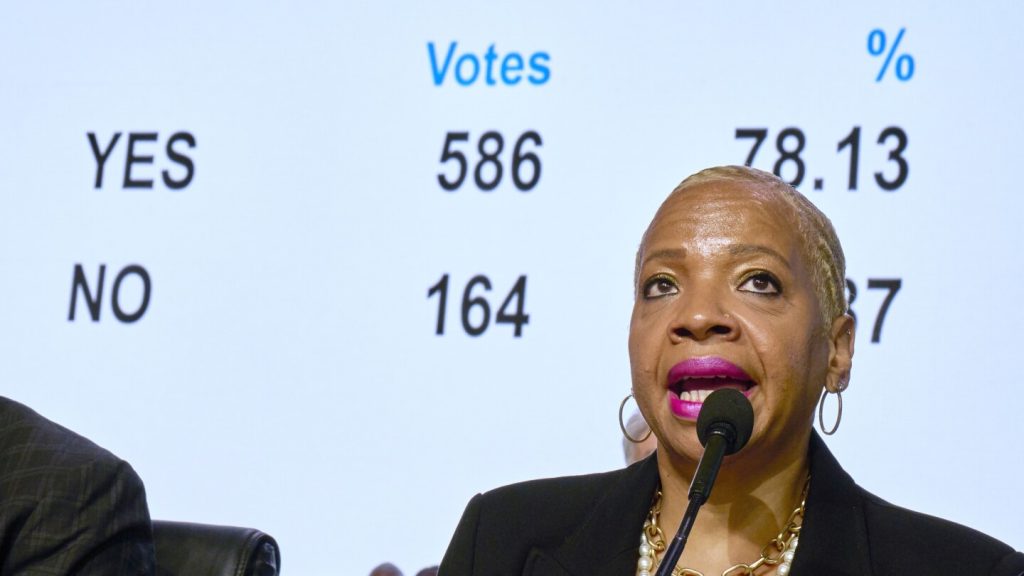United Methodist delegates at the General Conference in Charlotte, North Carolina, have approved a constitutional amendment that would allow for the creation of regional conferences within the international church. This amendment would give regions autonomy in adapting church rules to their local contexts, potentially easing debates over LGBTQ issues. The proposal received overwhelming support from delegates, with a vote of 586-164. The U.S. region would also gain the flexibility to decide on matters such as LGBTQ ordination and same-sex marriage.
The constitutional amendment requires approval from two-thirds of the annual conferences to become official. If ratified, the change could allow the U.S. church to authorize LGBTQ rites, while international churches with more conservative views on sexuality would not be obligated to do the same. The amendment aims to give autonomy to regions within the church, allowing each area to make decisions that best suit its context. The proposal is seen as a way to address the growing divide within the denomination over LGBTQ issues and other matters.
Advocates of the regionalization proposal believe it will help decentralize the church and address concerns that it is too focused on U.S. issues. However, some opponents have raised concerns about the plan’s resemblance to colonial-era strategies of divide-and-conquer. Despite these criticisms, supporters argue that the amendment will provide renewed strength, life, and vitality to the church. Discussions on LGBTQ issues are expected to continue at the General Conference, with some proposals aiming to lift current bans on ordaining LGBTQ individuals and performing same-sex marriages.
The proposal has generated mixed reactions among delegates from different regions, with some expressing support for the autonomy it would provide, while others worry about perpetuating colonial structures, particularly in Africa. Critics argue that the plan could divide the church along national lines, undermining the sense of unity. African delegates have raised concerns about the proposed regionalization in the continent, noting the arbitrary creation of national borders by European colonizers. Despite these challenges, leaders from various regions emphasize the importance of building a platform for mutual understanding and unity within the church.
The General Conference marks the first meeting since a quarter of U.S. congregations departed from the denomination due to disagreements over LGBTQ issues. While the focus has been on regionalization and autonomy, the discussions around LGBTQ ordination and same-sex marriage are expected to intensify in the coming days. The proposed constitutional amendment represents a significant step towards addressing long-standing tensions within the United Methodist Church and could pave the way for a more inclusive and united church in the future.


